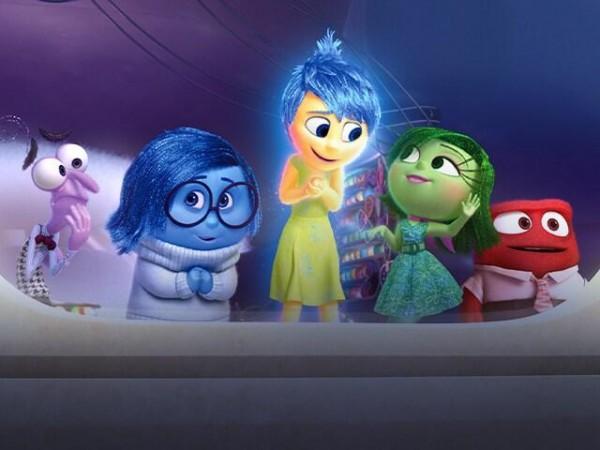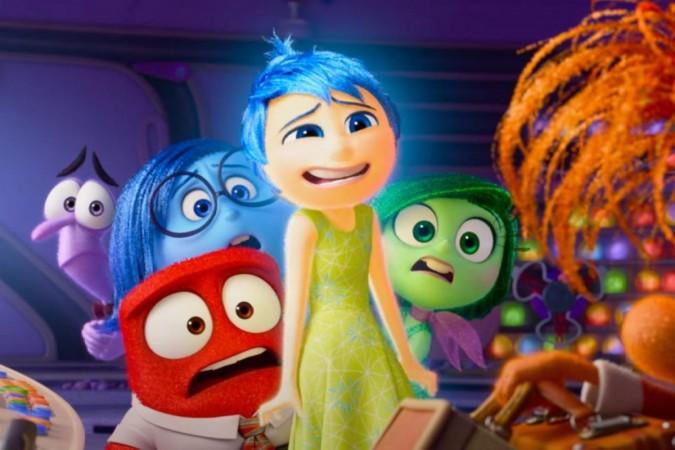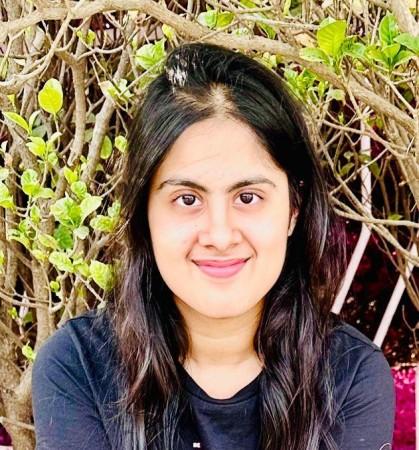
"I am a good person."
"I'm not good enough."
These voices, these thoughts, and these beliefs. They all persist in our head. It doesn't matter whether you're 13 or 56. It doesn't matter whether you're smart or dumb. I was 8 when I watched Inside Out and 17 when I watched its sequel. As a kid, it seemed like awesome movie with cool balls as "memories," and it ended with me finding joy in being the most adorable creature to ever exist. Of course, now that I'm 17, I'm also a psychology student. To me, this movie seemed like a deep exploration of one's self-concept and perception. It explored themes of adolescence, first time jitters, the constant urge to want to "fit in," and ultimately, who you truly are as a person. Joy, sadness, disgust, fear, and anger were portrayed as "basic" emotions, whereas new emotions, which were more "complex" included anxiety, envy, embarrassment, and boredom. The basic emotions were quick to be suppressed by the more complex ones as the movie progressed.
On a deeper level, it emphasises how we tend to be overcome by complexities of life once we start growing up. Sure, you're going to be happy, you're going to be sad. But it won't be the plain and pure happiness you once felt from running around in the sand as a kid. Maybe there's something more to it; maybe there's possible delusion behind it. Maybe it's your anxiety telling you that you're happy and it's something you've always wanted. How does one know what they want? Can our emotions truly micromanage us? That's what was happening in Riley's case. It wasn't just anxiety that was trying to manage her life. We realise that joy was trying to do the same. Of course, our natural assumption is that joy is amazing, she's always right and we categorised anxiety as the villain in the story.
But was she really the villain? Was anyone a villain at all? That's the real question. No, there wasn't one.

It was a question of what version of herself Riley preferred. Self-concept and self perception were the main highlights of the movie. Joy and the other "basic" emotions felt like THEY knew who Riley truly was—the nice, understandable and sweet girl who'd be more open to staying in her own little bubble of friends that she's been with for years. Anxiety and the other "complex" emotions, on the other hand, felt like living in the future and planning ahead was what her personality truly was. They micromanaged her to the point where she was messing up in almost every aspect of her life: her friendships, her passion of ice hockey, her possible connections, etc.
A battle of emotions, a battle between emotions. That's truly what it felt like. There are no "good" or "bad" emotions. Whatever we feel is human; whatever we feel is authentic and a product of our circumstances. How we decide where those emotions take us is something that can still be judged. As the plot built up, most people started disliking anxiety as it was practically killing Riley. I admit, even I got pretty anxious myself. However, at the end, we realise that people talk about being balanced for a reason.
People are products of their experiences. A product of the choices they make. A product of the priorities they set. Riley wasn't herself, neither when Joy micromanaged her nor when anxiety did. Their perception of her 'sense of self' was drafted by them. So what made it HERS? That's right, it wasn't her. People ultimately need to decide who they are THEMSELVES. Riley had experienced every emotion she possibly could at that age and she got a taste of every type of situation that could possibly be thrown at her in the future. Now it was up to her to decide who she truly was. You need to have experienced everything in order to be the truest and most accurate versions of yourself. That's how one's personality builds up.
Something else that I feel like was simultaneously depicted in the movie is being your authentic self and loving it while you're at it. Riley kept altering her personality and even appearance to "fit in" with the "cool girls," and it was painfully obvious. People need to realise that being authentic is the very basis of being unique—the very basis of what makes you different from the rest of the 8 billion people in the world. It's natural to feel the need to fit in so people like you and you don't feel lonely; however, you lose your true self in the process. And you might not even be happy with the way you're projecting yourself to be. You're just gaslighting yourself into thinking you were always that way when, deep down, you know it's not you, and you're not happy about it. It reminds me of this quote by Oscar Wilde: "Just be yourself because everyone else is taken".

Disclaimer: This article is by Rhea Rajneesh, a student of Class XII in The Heritage School Vasant Kunj New Delhi. She can be reached on Twitter/X @reachrhea. Views expressed are author's own.

















